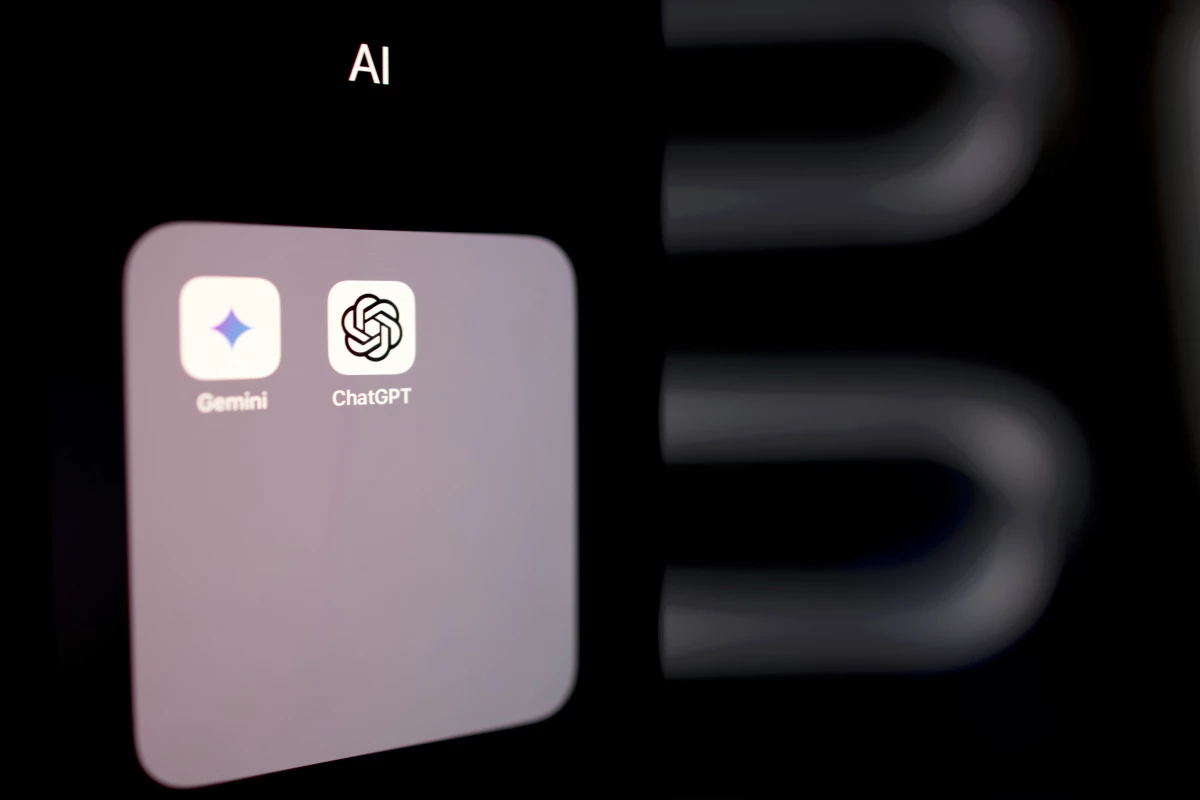
Artificial intelligence technology is rapidly evolving and fundamentally changing our daily lives and business environments. Companies are actively considering adopting AI technology to secure competitiveness, while individuals are doing so to improve their quality of life. In 2025, as AI technology continues to develop, it is expected to break down the boundaries of existing industries and create new value. Here, we will look at 5 AI trends to watch in 2025 and the changes they will bring to our society.
Autonomous Business Partners, AI Agents

AI agents that autonomously handle complex workflows are gradually becoming business partners for people. These agents will become more intelligent in the future, gaining access to various systems and making multi-stage decisions independently.
For example, in the financial sector, AI agents are spreading services that analyze customers' financial situations to create customized investment portfolios and automatically reallocate assets according to market fluctuations. In logistics, AI agents can integrate demand forecasting, inventory management, and delivery route optimization to reduce operating costs.
Enhanced Industry-Specific Expertise of Large Language Models (LLMs)

As general-purpose large language models (LLMs) such as GPT, Claude, and Gemini have become part of everyday life, specialized LLMs for specific industries and domains are expected to gain attention in 2025. Specialized models with deep domain knowledge are emerging in fields requiring expertise such as medicine, law, finance, and manufacturing.
In the medical field, 'Medical LLMs' are gaining attention. These are specialized language models trained on millions of medical papers, clinical data, drug information, and medical guidelines, and unlike general LLMs, they accurately understand medical terminology and concepts. Medical LLMs can analyze patient data to present diagnostic possibilities to doctors and recommend treatment options based on the latest research findings.

In the legal field, 'Legal LLMs' are being utilized. These models have intensively learned the legal systems, precedents, statutes, and academic literature of various countries, giving them the ability to understand and create legal documents. They identify risk clauses in thousands of pages of contracts, predict litigation outcomes based on past precedents, and automatically draft legal documents. Using this technology, lawyers can handle more documents per person, and novice lawyers can provide legal advice at the level of experienced lawyers.
Evolution into Multimodal AI
Multimodal AI is technology that simultaneously understands and analyzes various forms of information such as text, images, voice, and video. In 2025, the ability to process complex data in real-time and understand context is expected to greatly improve.
In the autonomous vehicle field, multimodal AI analyzes camera and GPS data simultaneously to judge road conditions more accurately. Companies like Tesla are developing technology that enables safe driving even in bad weather or complex road environments through multimodal AI. In the retail industry, smart stores that provide personalized shopping experiences by analyzing customers' facial expressions, voice, and behavior patterns in real-time, utilizing comprehensive audio and visual materials, are gaining attention.

On-Device AI and Privacy Protection
While AI services are convenient, the reality is that cloud-based AI services have increased concerns about personal information leaks. There is also anxiety about the possibility of personal information being used as training data without one's knowledge.
As a result, on-device AI technology, which processes user data directly on smartphones or wearable devices without sending it to the cloud, is rapidly developing to overcome the limitations of cloud-based AI. With on-device AI, AI functions can be used without an internet connection, and responses can be received instantly without network delays.
On-device AI can be an alternative that fundamentally blocks the risk of privacy infringement by ensuring that user data does not leave the device. There are also efforts to develop hybrid AI models (processing important data on the device, general data in the cloud) that minimize the risk of privacy infringement.
Apple is enhancing user experience by processing photo analysis, voice recognition, and face recognition within the device through the Neural Engine embedded in iPhones and iPads. This is a model that provides advanced AI functions while safely storing personal information on the device.
The Need for Eco-Friendly 'Green AI'

Environmental issues are emerging as the energy consumption required for training and operating large AI models increases rapidly. According to Bloomberg reports, it has been pointed out that training a single AI model requires more electricity than 100 households in the United States use in a year. As a result, interest is also growing in eco-friendly AI models that can reduce power consumption while maintaining AI performance.
Google has developed special-purpose chips such as TPU (Tensor Processing Unit) to improve the energy efficiency of AI calculations by more than 30 times compared to existing CPUs. In addition, they have achieved a 15% reduction in energy usage by optimizing data center cooling systems with AI.
Changes are also occurring in terms of model architecture. The development of 'Green AI' that reduces model size while maintaining performance using sparse modeling and knowledge distillation techniques is actively progressing. Energy-efficient AI is attracting interest from companies because it fulfills environmental responsibilities while also bringing cost reduction effects.
Pay Attention to Constantly Changing AI Trends
The 2025 AI technology trends of enhanced autonomy of AI agents, the emergence of industry-specific LLMs, the maturation of multimodal AI, the spread of on-device AI, and the development of energy-efficient AI will all make our daily lives and industrial environments smarter and more sustainable.
Companies and individuals who preemptively identify and actively adopt these trends will be able to secure a competitive advantage in the rapidly changing digital era. As the evolution of AI represents not just a simple technological change but a fundamental paradigm shift in our society, it is necessary to continuously monitor AI development trends.




